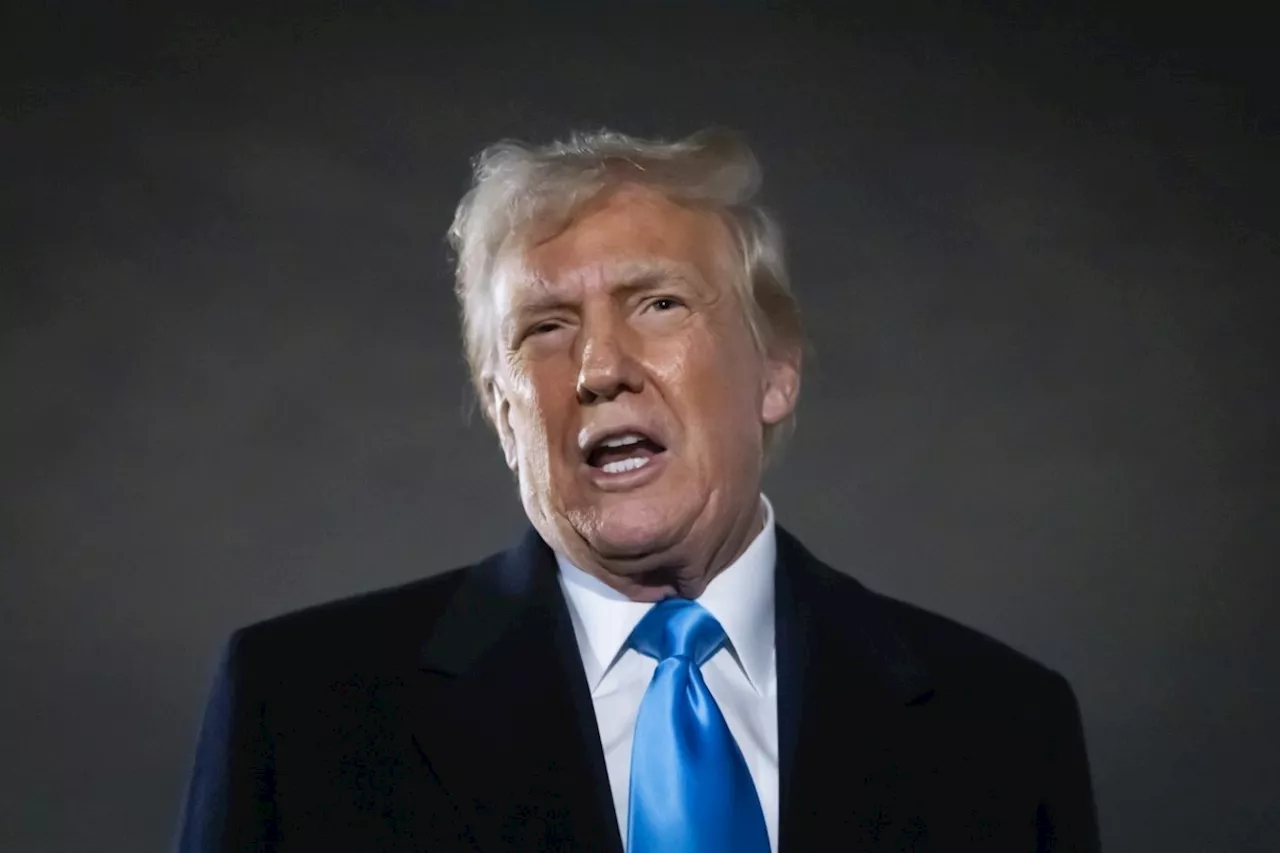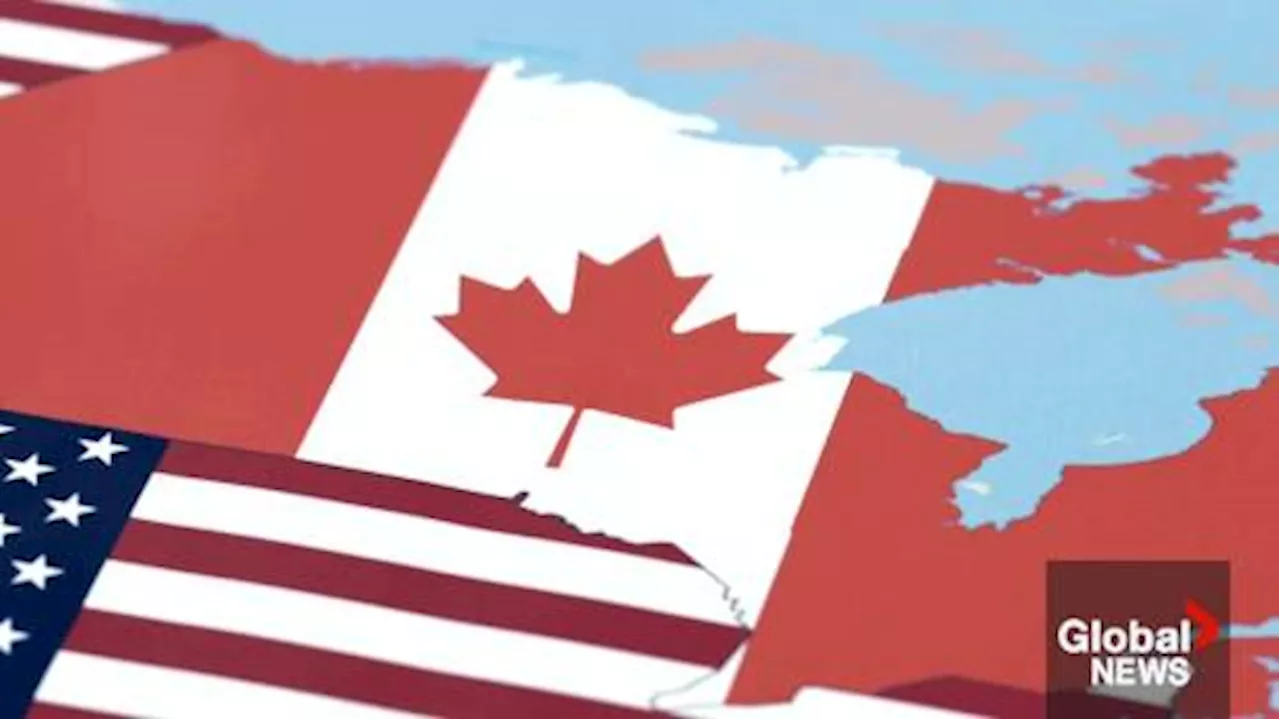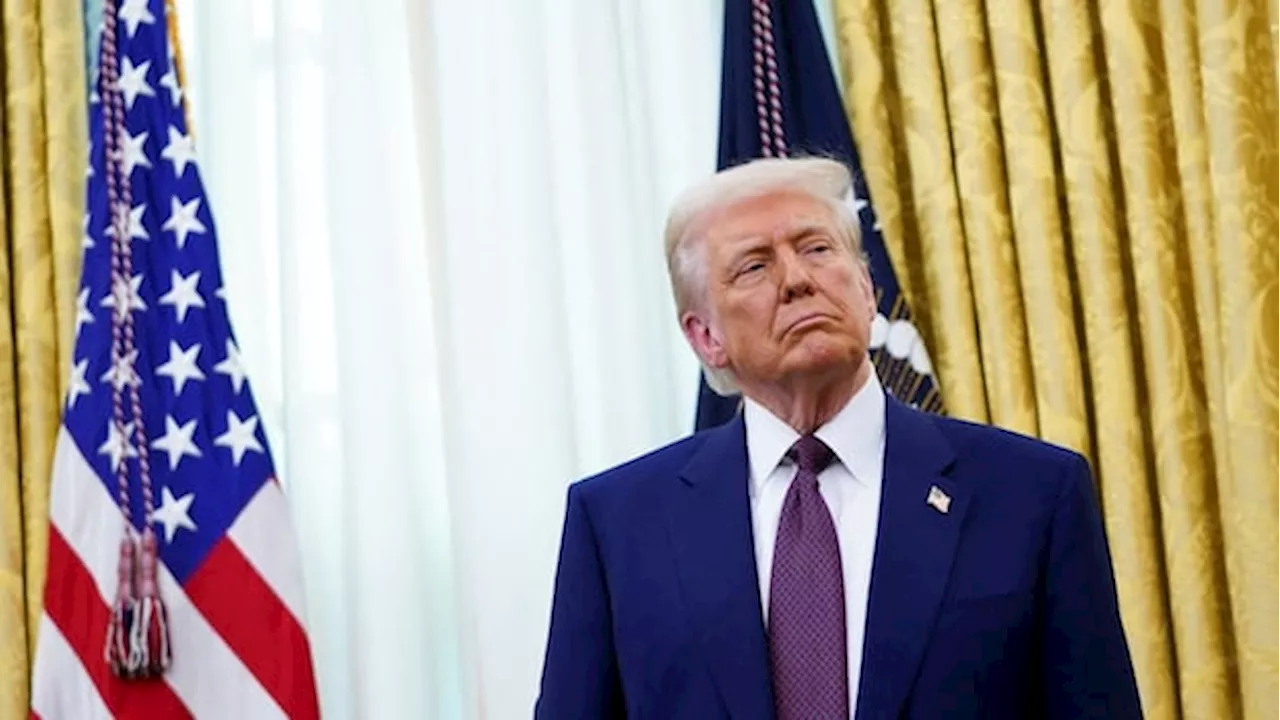President Trump has instructed his staff to develop a plan for implementing reciprocal tariffs on any country that imposes tariffs on American goods. The move, aimed at leveling the playing field in global trade, could significantly impact international relations and consumer prices.
U.S. President Donald Trump on Thursday instructed his staff to develop a plan to implement what are known as reciprocal tariffs on every nation, regardless of its alliance status, that imposes tariffs on American imports. The president signed a memorandum directing his economic team to commence work on a plan to impose reciprocal tariffs on global trading partners that mirror the existing tariffs imposed by those foreign nations — like Canada — on goods originating from the United States.
'Whatever countries charge the United States of America, we will charge them. No more, no less,' Trump stated to reporters in the Oval Office while discussing measures that the White House asserts will bolster economic and national security. Reciprocal tariffs represent tariffs — supplementary taxes levied on imported goods — where two countries impose similar taxes on each other's products. (If, for instance, your neighbor charged you $5 to borrow a carton of milk, you would retaliate by charging them the same rate when they requested a carton from you.) This strategy aims to ensure fairer trading practices by preventing neighbors, or countries, from exploiting another.A worker utilizes a machine to stamp out vehicle components at Martinrea auto parts in Woodbridge, Ont., on February 3. Reciprocal tariffs would constitute a distinct measure from the tariffs Trump has already threatened to inflict on other nations, such as those targeting Canada. A White House official who addressed reporters prior to Trump's White House event on Thursday disclosed that the administration is also employing reciprocal tariffs to counterbalance other trade barriers that hinder the flow of U.S. products into foreign markets, including burdensome regulations, value-added taxes, government subsidies, and exchange rate policies.Trump perceives Canada's general sales tax as a tariff, according to two senior Canadian government sources who spoke to Radio-Canada. The president raised this issue during one of his phone conversations with Prime Minister Justin Trudeau on February 3, to which Trudeau responded that there are several American states, including Florida, that also impose sales taxes. The president had been anticipated to implement reciprocal tariffs on Thursday, but he fell short of that objective. His memorandum initiates what will likely span weeks or months of investigation into the levies imposed by trading partners on U.S. goods, followed by the development of a corresponding response. The National analyzes why the U.S. president is so fixated on Canada. Additionally, About That host Andrew Chang elucidates why Trump desires tariffs on steel and aluminum — once again. Howard Lutnick, Trump's nominee for commerce secretary, stated that the deadline to complete the studies is April 1. The White House official informed reporters that the administration would prioritize examining the most 'egregious' issues when contemplating reciprocal tariffs, including nations with the largest trade surpluses and the highest tariff rates. Targets encompass China, Japan, South Korea, and the European Union. The tariffs would deviate from a 'one-size-fits-all' approach in favor of more customized levies, he stated, although he did not preclude the possibility of a flat global tariff. Prime Minister Justin Trudeau departs the Canada-U.S. Economic Summit in Toronto on February 7. The president threatened 25 percent tariffs on nearly all imports from Canada and Mexico earlier this month. The nations averted a trade war when their leaders reached an agreement to postpone the implementation of tariffs, which had been scheduled to take effect on March 1. Trudeau characterized those levies, set to come into force on March 12, as 'unjustified' and 'unacceptable.' Trump stated on Monday that he was also examining separate tariffs on cars, semiconductors, and pharmaceuticals. On Thursday, he indicated that he was also considering additional taxes on automobiles. Trump, who campaigned on a pledge to reduce prices for Americans, acknowledged that U.S. consumers could experience price increases in the short term as a result of these actions. The president has long viewed tariffs as a means to stimulate the domestic economy by rendering foreign products less appealing.
TRUMP TARIFFS TRADE WAR CANADA CHINA GLOBAL TRADE
Canada Latest News, Canada Headlines
Similar News:You can also read news stories similar to this one that we have collected from other news sources.
 B.C. could impose tariffs on products from red states if Trump tariffs go ahead, minister saysB.C.'s Finance Minister Brenda Bailey will hold a press conference on Monday afternoon following President Donald Trump's inauguration in the United States.
B.C. could impose tariffs on products from red states if Trump tariffs go ahead, minister saysB.C.'s Finance Minister Brenda Bailey will hold a press conference on Monday afternoon following President Donald Trump's inauguration in the United States.
Read more »
 Canada Imposes 25% Tariffs on Billions of US Goods in Response to Trump's TariffsCanadian Prime Minister Justin Trudeau announced retaliatory tariffs of 25 percent on billions of US dollars worth of American goods in response to President Donald Trump's tariffs on Canadian steel and aluminum.
Canada Imposes 25% Tariffs on Billions of US Goods in Response to Trump's TariffsCanadian Prime Minister Justin Trudeau announced retaliatory tariffs of 25 percent on billions of US dollars worth of American goods in response to President Donald Trump's tariffs on Canadian steel and aluminum.
Read more »
 Canada Retaliates Against Trump's Tariffs with 25% Tariffs on Billions of U.S. GoodsIn response to U.S. President Donald Trump's steel and aluminum tariffs, Canada has imposed retaliatory tariffs of 25% on billions of U.S. goods. The move escalates trade tensions between the two countries and highlights the ongoing dispute over fair trade practices. The Canadian government estimates that the tariffs will affect approximately $16 billion worth of U.S. goods entering Canada annually.
Canada Retaliates Against Trump's Tariffs with 25% Tariffs on Billions of U.S. GoodsIn response to U.S. President Donald Trump's steel and aluminum tariffs, Canada has imposed retaliatory tariffs of 25% on billions of U.S. goods. The move escalates trade tensions between the two countries and highlights the ongoing dispute over fair trade practices. The Canadian government estimates that the tariffs will affect approximately $16 billion worth of U.S. goods entering Canada annually.
Read more »
 Canada Retaliates Against Trump's Tariffs with 25% Tariffs on Billions of U.S. GoodsPrime Minister Justin Trudeau announces Canada's response to U.S. tariffs on Canadian steel and aluminum, outlining a 25% tariff on billions of U.S. goods. The move escalates trade tensions between the two countries and aims to protect Canadian jobs and industries.
Canada Retaliates Against Trump's Tariffs with 25% Tariffs on Billions of U.S. GoodsPrime Minister Justin Trudeau announces Canada's response to U.S. tariffs on Canadian steel and aluminum, outlining a 25% tariff on billions of U.S. goods. The move escalates trade tensions between the two countries and aims to protect Canadian jobs and industries.
Read more »
 Canada to Retaliate with Tariffs Against US Goods, Amid Trump's Tariffs on Canadian ProductsTensions escalate between Canada and the United States as President Trump imposes 25% tariffs on Canadian goods, prompting Canada to retaliate with tariffs on $155 billion worth of American products. The escalating trade dispute has drawn criticism from Canadian premiers and leaders, who warn of the economic consequences for both countries.
Canada to Retaliate with Tariffs Against US Goods, Amid Trump's Tariffs on Canadian ProductsTensions escalate between Canada and the United States as President Trump imposes 25% tariffs on Canadian goods, prompting Canada to retaliate with tariffs on $155 billion worth of American products. The escalating trade dispute has drawn criticism from Canadian premiers and leaders, who warn of the economic consequences for both countries.
Read more »
 Canada responds to Trump tariffs with tariffs of its own | Watch News Videos OnlineStarting Feb. 4, Canada will be hit with a 10 per cent tariff on energy and 25 per cent tariffs on everything else. Moshe Lander, an economics professor at Concordia University joined Global News Morning Edmonton to talk more about the tariffs and what they could mean for Canadian businesses.
Canada responds to Trump tariffs with tariffs of its own | Watch News Videos OnlineStarting Feb. 4, Canada will be hit with a 10 per cent tariff on energy and 25 per cent tariffs on everything else. Moshe Lander, an economics professor at Concordia University joined Global News Morning Edmonton to talk more about the tariffs and what they could mean for Canadian businesses.
Read more »
